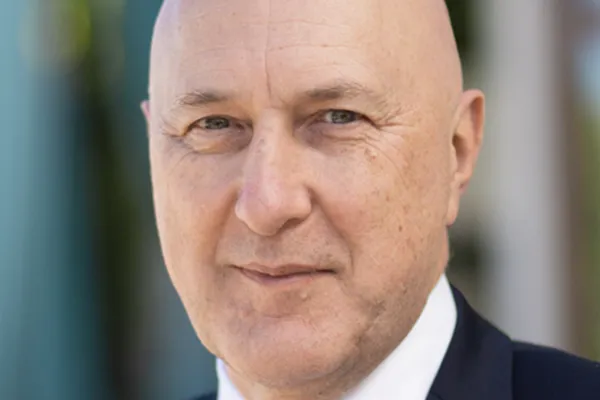Before they became his clients, or even knew him, some chief executives felt a high regard for James Dunne III, the charismatic leader of Sandler O’Neill + Partners, who led that firm’s recovery following the tragedy of September 11, 2001. On that awful day, Sandler O’Neill, which had offices on the 104th floor of World Trade Center Tower II, lost 66 of its 171 employees, including co-founder Herman Sandler. Dunne resolutely rebuilt the firm, devising a plan to pay the health benefits and educational costs of family members of employees who died.
Dunne’s efforts, and the grit and resourcefulness of his colleagues, caught the attention of many. One was D. Paul Jones Jr., longtime chief executive of Compass Bancshares. “You can tell a lot about people when you see them in trouble,” Jones says.
Jones eventually met Dunne when the latter advised Fort Worth–based TexasBank, which Compass acquired in 2005. “He was professional and efficient. There was not a lot of nonsense,” recalls Jones, who recommended Dunne and Sandler to his board to advise the bank on its sale last year to Banco Bilbao Vizcaya Argentaria for $9.6 billion.
The September 11 tragedy led to Sandler’s first bond financing mandates for Mercantile Bankshares Corp. “They were certainly competent, but I also thought it was the right thing to do, given what they’d been through,” former Mercantile CEO Edward (Ned) Kelly says. Dunne and company made such a strong impression that Sandler went on to represent Mercantile in acquisitions in 2003 and 2006. Last year Sandler and Dunne advised the Baltimore bank on its $6 billion sale to PNC Financial Services Group. Kelly says he chose Sandler because its industry knowledge and contacts are “second to none,” and because “they have a highly personal touch in their client relations.”
That kind of special attention made all the difference to John Middleton, who picked Dunne and Sandler to advise him on the sale of John Middleton, Inc., the King of Prussia, Pennsylvania–based cigar business started by his great-great-grandfather in 1856, to Altria Group for $2.9 billion in November. Middleton had never worked with an investment banker before. But after rebuffing several overtures from Altria, he began to consider a sale. His friend Richard Riley, now chairman and CEO of LoJack Corp., suggested they visit Dunne, his roommate at Notre Dame University, and use him as a sounding board. He reasoned that because Dunne was a straight shooter and a financial services banker, he could offer disinterested advice. Middleton agreed. During the meeting he decided to work with Dunne.
“Jimmy is a remarkable executive. He’s also a remarkable person in terms of integrity and ethics, and it’s hard to buy those things,” Middleton says.
Long known as an adviser to small and midsize banks, Sandler O’Neill is making a name for itself in bigger, higher-profile transactions. The firm advised on 60 deals last year worth a combined $25.85 billion, good for 23rd place on the U.S. M&A league tables and 13th among financial services industry targets, according to Dealogic. Over the past two years, Sandler O’Neill has advised on 125 deals, with an average size of $630 million. In 2005 it advised on 43 deals, with an average size of $193 million. As last year ended it was picked to advise the Countrywide Financial Corp. board on the mortgage giant’s pending $4 billion sale to Bank of America Corp.
More may be on the way. “With the Lehmans, Goldmans and Merrills, very little of their business is advisory now,” Compass Bancshares’ Jones says. “Sandler has some trading and other businesses, but giving advice is still its bread and butter day in, day out.”





